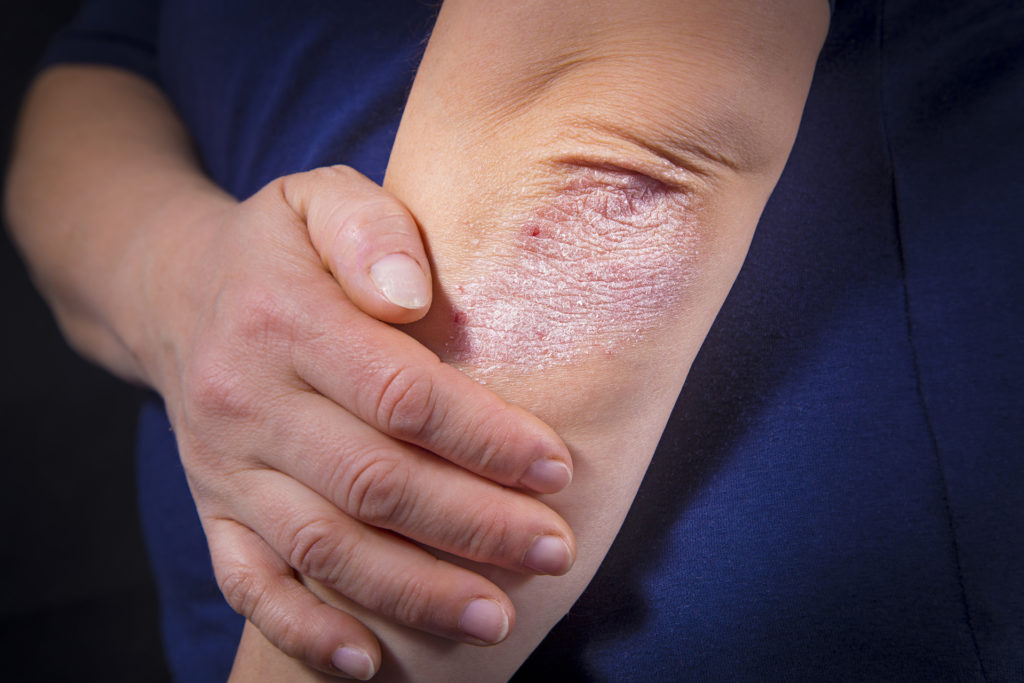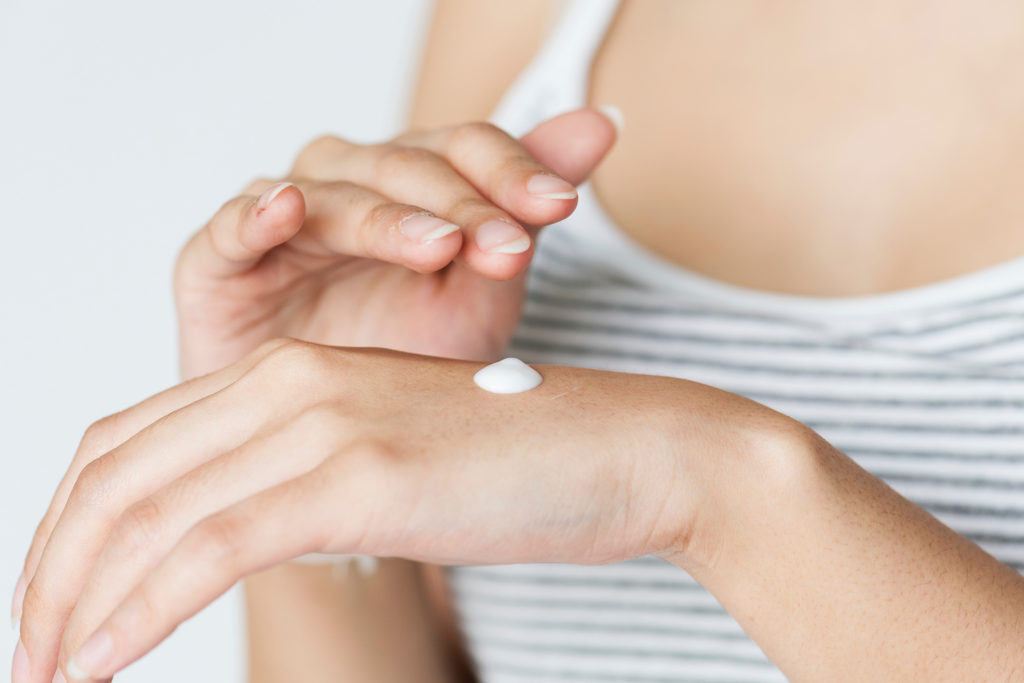7 Things You Should Know About Psoriasis

By Dr Elizabeth Kershaw-Yates, GP and one of the medical team at TheOnlineClinic.
Psoriasis is a difficult disease to treat. People with psoriasis will have different triggers and will require different treatments to manage it. We spoke to the team at The Online Clinic to ask them about the key things everyone should know about psoriasis.
1 It’s not contagious
You can’t get psoriasis by touching it. Psoriasis is an autoimmune disease that affects the skin and can’t be spread through skin-to-skin contact.
2 It affects 1.5% of people in the UK
Usually, psoriasis begins between 15 and 30 years of age, and its occurrence decreases in older people. However, it affects people of all ages.
In adulthood, psoriasis affects more men than women, but in females it often occurs at a younger age.
3 ‘Plaque psoriasis’ is the most common form
The most common form of psoriasis is plaque psoriasis, appearing on the elbows, knees, lower back and scalp as red patches that might be itchy, thick, and covered with silver-white scales that crack and bleed.
4 No one is certain what causes it
Psoriasis is thought to run in families, but it is more complex than this. A mix of environmental factors, triggers, and inherited genes cause the disease. Psoriasis is often reported following stressful situations, cold, dry weather and skin injuries. It can also be triggered by infections, particularly those caused by Strep throat and in people with HIV.
5 Light can have an impact
A little sunlight exposure can improve psoriasis, but severe exposure can also make it worse. Some kinds of light therapies might help – including phototherapy, which involves exposure of the skin to ultraviolet light from natural sunlight or artificial sources.
6 It can’t be cured
Unfortunately, psoriasis can’t be cured, but there are treatments that can reduce the rate of skin cell turnover and remove the scaly skin cells. Creams and ointments such as moisturisers, coal tar, salicylic acid, corticosteroids, vitamin D analogues, and retinoids can all help to reduce inflammation and improve appearance.
7 Many people can manage their symptoms themselves
Bathing each day with oils in lukewarm water can help to reduce inflammation, remove dead skin cells and improve the skin. Using a thick moisturising cream or ointment after bathing and frequently during cold, dry weather will help your skin retain its moisture, and covering psoriasis after moisturising at night will reduce redness.








